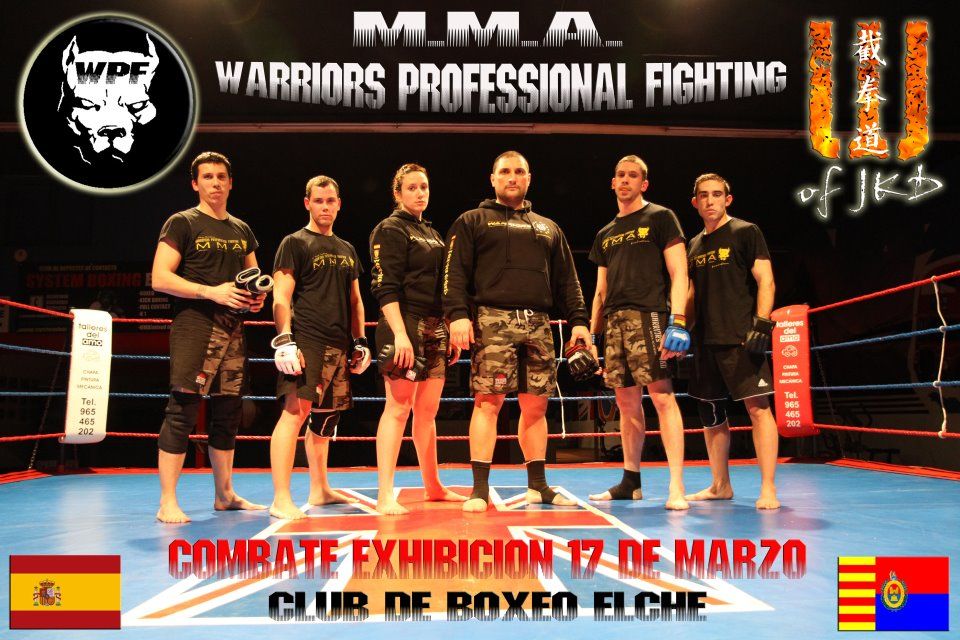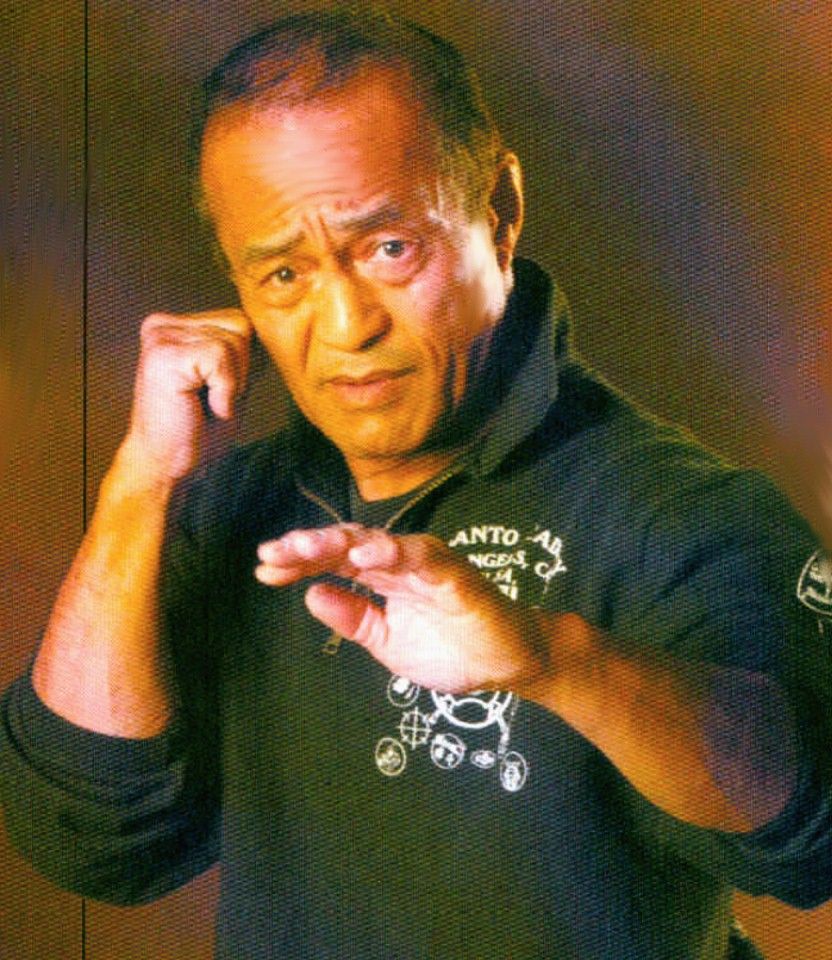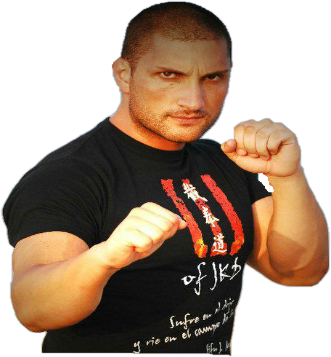Exile and comeback
Ali refused to be inducted into the armed forces, stating publicly that, "no Vietcong ever called me nigger." He was systematically denied a boxing license in every state and stripped of his passport. As a result, he did not fight from March 1967 to October 1970—from ages 25 to almost 29—as his case worked its way through the appeal process.
In 1971, the US Supreme Court overturned his conviction in a unanimous 8-0 ruling (Thurgood Marshall abstained from the case). During this time of inactivity, as opposition to the Vietnam War began to grow and Ali's stance gained sympathy, he spoke at colleges across the nation, criticizing the Vietnam War and advocating African American pride and racial justice. On August 12, 1970, with his case still in appeal, Ali was granted a license to box by the City of Atlanta Athletic Commission, thanks to State Senator Leroy R. Johnson. Ali's first return bout was against Jerry Quarry on October 26, resulting in a win after three rounds after Quarry was cut.
Publication Information
- Historical : Muhammad Ali
- Birth Name : Cassius Marcellus Clay, Jr.
- Other names : The Greatest, The People's Champion, The Louisville Lip
- Born : January 17, 1942, Louisville, Kentucky, U.S.
- Died : June 3, 2016 (aged 74), Scottsdale, Arizona, U.S.
- Cause of death : Septic shock
- Resting place : Cave Hill Cemetery, Louisville, Kentucky, U.S.
- Monuments : Muhammad Ali Center, Muhammad Ali Mural, Los Angeles, CA
- Gender : Male
- Height : 191 cm
- Occupation : The Greatest World Heavyweight Champion Boxer, Religious and Charitable Work
- Ethnicity : African American
- Religion : Sunni Islam
- Spouse(s) : Sonji Roi (m. 1964; div. 1966), Belinda Boyd (m. 1967; div. 1977), Veronica Porché Ali (m. 1977; div. 1986), Yolanda Williams (m. 1986–2016)
- Children : 9, including Laila Ali
- Parent(s) : Cassius Marcellus Clay Sr., Odessa Grady Clay
- Awards : List Of Awards
- No Of Pages : Page 1 | Page 2 | Page 3 | Page 4
A month earlier, a victory in federal court forced the New York State Boxing Commission to reinstate Ali's license. He fought Oscar Bonavena at Madison Square Garden in December, an uninspired performance that ended in a dramatic TKO of Bonavena in the 15th round. The win left Ali as a top contender against heavyweight champion Joe Frazier.
Ali and Frazier's first fight, held at the Garden on March 8, 1971, was nicknamed the "Fight of the Century", due to the tremendous excitement surrounding a bout between two undefeated fighters, each with a legitimate claim as heavyweight champions. Veteran boxing writer John Condon called it "the greatest event I've ever worked on in my life." The bout was broadcast to 35 foreign countries; promoters granted 760 press passes.
Adding to the atmosphere were the considerable pre-fight theatrics and name calling. Ali portrayed Frazier as a "dumb tool of the white establishment." "Frazier is too ugly to be champ," Ali said. "Frazier is too dumb to be champ." Ali also frequently called Frazier an Uncle Tom. Dave Wolf, who worked in Frazier's camp, recalled that, "Ali was saying 'the only people rooting for Joe Frazier are white people in suits, Alabama sheriffs, and members of the Ku Klux Klan. I'm fighting for the little man in the ghetto.' Joe was sitting there, smashing his fist into the palm of his hand, saying, 'What the fuck does he know about the ghetto?'"
Ali began training at a farm near Reading, Pennsylvania in 1971 and finding the country setting to his liking, Muhammad Ali then sought to develop a real training camp in the countryside. Twenty minutes from Reading, (one hour from Philadelphia and a two hour drive from New York City), Ali found a five acre site on a Pennsylvania country road in the village of Deer Lake. (On a map, the location can more easily be found by looking for "Orwigsburg".) On this site, Ali carved out what was to become his training camp, the camp where he lived and trained for all the many fights he had from 1972 on to the end of his career in the 1980s. The camp still stands today and is a bed and breakfast.
The Monday night fight lived up to its billing. In a preview of their two other fights, a crouching, bobbing and weaving Frazier constantly pressured Ali, getting hit regularly by Ali jabs and combinations, but relentlessly attacking and scoring repeatedly, especially to Ali's body. The fight was even in the early rounds, but Ali was taking more punishment than ever in his career. On several occasions in the early rounds he played to the crowd and shook his head "no" after he was hit.
In the later rounds—in what was the first appearance of the "rope-a-dope strategy"—Ali leaned against the ropes and absorbed punishment from Frazier, hoping to tire him. In the 11th round, Frazier connected with a left hook that wobbled Ali, but because it appeared that Ali might be clowning as he staggered backwards across the ring, Frazier hesitated to press his advantage, fearing an Ali counter-attack. In the final round, Frazier knocked Ali down with a vicious left hook, which referee Arthur Mercante said was as hard as a man can be hit. Ali was back on his feet in three seconds Nevertheless, Ali lost by unanimous decision, his first professional defeat.
Ali's characterizations of Frazier during the lead-up to the fight cemented a personal animosity toward Ali by Frazier that lasted until Frazier's death. Frazier and his camp always considered Ali's words cruel and unfair, far beyond what was necessary to sell tickets. Shortly after the bout, in the studios of ABC's Wide World of Sports during a nationally televised interview with the two boxers, Frazier rose from his chair and wrestled Ali to the floor after Ali called him ignorant.
After the loss, Ali fought Quarry, a second bout with Floyd Patterson and Bob Foster in 1972, winning a total of six fights that year. In 1973, Ali suffered the second loss of his career at the hands of Ken Norton, who broke Ali's jaw during the fight. After initially seeking retirement, Ali won a controversial decision against Norton in their second bout, leading to a rematch at Madison Square Garden on January 28, 1974, with Joe Frazier—who had recently lost his title to George Foreman.
Ali was strong in the early rounds of the fight, and staggered Frazier in the second round (referee Tony Perez mistakenly thought he heard the bell ending the round and stepped between the two fighters as Ali was pressing his attack, giving Frazier time to recover). However, Frazier came on in the middle rounds, snapping Ali's head in round seven and driving him to the ropes at the end of round eight. The last four rounds saw round-to-round shifts in momentum between the two fighters. Throughout most of the bout, however, Ali was able to circle away from Frazier's dangerous left hook and to tie Frazier up when he was cornered—the latter a tactic that Frazier's camp complained of bitterly. Judges awarded Ali a unanimous decision.
Heavyweight champion (second tenure)
The defeat of Frazier set the stage for a title fight against heavyweight champion George Foreman in Kinshasa, Zaire, on October 30, 1974—a bout nicknamed "The Rumble in the Jungle". Foreman was considered one of the hardest punchers in heavyweight history. In assessing the fight, analysts pointed out that Joe Frazier and Ken Norton—who had given Ali four tough battles and won two of them—had been both devastated by Foreman in second round knockouts. Ali was 32 years old, and had clearly lost speed and reflexes since his twenties. Contrary to his later persona, Foreman was at the time a brooding and intimidating presence. Almost no one associated with the sport, not even Ali's long-time supporter Howard Cosell, gave the former champion a chance of winning.
As usual, Ali was confident and colorful before the fight. He told interviewer David Frost, "If you think the world was surprised when Nixon resigned, wait 'til I whup Foreman's behind!" He told the press, "I've done something new for this fight. I done wrestled with an alligator, I done tussled with a whale; handcuffed lightning, thrown thunder in jail; only last week, I murdered a rock, injured a stone, hospitalized a brick; I'm so mean I make medicine sick." Ali was wildly popular in Zaire, with crowds chanting "Ali, bomaye" ("Ali, kill him") wherever he went.
Ali opened the fight moving and scoring with right crosses to Foreman's head. Then, beginning in the second round—and to the consternation of his corner—Ali retreated to the ropes and invited Foreman to hit him while covering up, clinching and counter-punching—all while verbally taunting Foreman. ("Is that all you got, George? They told me you could hit.") The move, which would later become known as the "Rope-A-Dope", so violated conventional boxing wisdom—letting one of the hardest hitters in boxing strike at will—that at ringside writer George Plimpton thought the fight had to be fixed.
Foreman, increasingly angered, threw punches that were deflected and didn't land squarely. Midway through the fight, as Foreman began tiring, Ali countered more frequently and effectively with punches and flurries, which electrified the pro-Ali crowd. In the eighth round, Ali dropped an exhausted Foreman with a combination at center ring; Foreman failed to make the count. Against the odds, and amidst pandemonium in the ring, Ali had regained the title by knockout.
In reflecting on the fight, George Foreman later said: "I'll admit it. Muhammad outthought me and outfought me."
Ali's next opponents included Chuck Wepner, Ron Lyle, and Joe Bugner. Wepner, a journeyman known as "The Bayonne Bleeder," stunned Ali with a knockdown in the ninth round; Ali would later say he tripped on Wepner's foot. It was a bout that would inspire Sylvester Stallone to create the acclaimed film, Rocky.
Ali then agreed to a third match with Joe Frazier in Manila. The bout, known as "The Thrilla in Manila", was held on October 1, 1975 in temperatures approaching 100 °F (38 °C). In the first rounds, Ali was aggressive, moving and exchanging blows with Frazier. However, Ali soon appeared to tire and adopted the "rope-a-dope" strategy, frequently resorting to clinches. During this part of the bout Ali did some effective counter-punching, but for the most part absorbed punishment from a relentlessly attacking Frazier.
In the 12th round, Frazier began to tire, and Ali scored several sharp blows that closed Frazier's left eye and opened a cut over his right eye. With Frazier's vision now diminished, Ali dominated the 13th and 14th rounds, at times conducting what boxing historian Mike Silver called "target practice" on Frazier's head. The fight was stopped when Frazier's trainer, Eddie Futch, refused to allow Frazier to answer the bell for the 15th and final round, despite Frazier's protests. Frazier's eyes were both swollen shut. Ali, in his corner, winner by TKO, slumped on his stool, clearly spent.
An ailing Ali said afterwards that the fight "was the closest thing to dying that I know", and, when later asked if he had viewed the fight on videotape, reportedly said, "Why would I want to go back and see Hell?" After the fight he cited Frazier as "the greatest fighter of all times next to me".
Decline
Following the Manila bout, Ali fought Jean-Pierre Coopman, Jimmy Young, and Richard Dunn, winning the last by knockout. Later in 1976, Ali participated in an exhibition bout in Tokyo against Japanese professional wrestler and martial artist Antonio Inoki (Muhammad Ali vs. Antonio Inoki). Though the fight was a publicity stunt, Ali suffered leg bruises, two blood clots and an infection in his legs due to Inoki's kicks. The fight was ultimately declared a draw. Ali fought Ken Norton for the third time at Yankee Stadium in September 1976, where Ali won by a heavily contested decision, which was loudly booed by the audience. Ali reacted to the fallout of this by announcing a brief retirement to practice his faith in Islam, having converted to Sunni Islam after falling out with the Nation of Islam the previous year.
After winning against Alfredo Evangelista in May 1977, Ali struggled in his next fight against Earnie Shavers that September, who pummeled Ali a few times with punches to the head. Ali won the fight by another unanimous decision, but the bout caused Ali's longtime doctor Ferdie Pacheco to quit after he was rebuffed for telling Ali he should retire. Pacheco was quoted as saying, "the New York State Athletic Commission gave me a report that showed Ali's kidneys were falling apart. I wrote to Angelo Dundee, Ali's trainer, his wife and Ali himself. I got nothing back in response. That's when I decided enough is enough."
In February 1978, Ali faced Leon Spinks at the Hilton Hotel in Las Vegas. At the time, Spinks had only seven professional fights to his credit, and had recently fought a draw with journeyman Scott LeDoux. Ali sparred less than two dozen rounds in preparation for the fight, and was seriously out of shape by the opening bell. He lost the title by unanimous decision. A rematch followed shortly thereafter in New Orleans, which broke attendance records. Ali won a unanimous decision in an uninspiring fight, making him the first heavyweight champion to win the belt three times.
Following this win, on July 27, 1979, Ali announced his retirement from boxing. His retirement was short-lived, however; Ali announced his comeback to face Larry Holmes for the WBA belt in an attempt to win the heavyweight championship an unprecedented fourth time. The fight was largely motivated by Ali's need for money. Boxing writer Richie Giachetti said, "Larry didn't want to fight Ali. He knew Ali had nothing left; he knew it would be a horror."
It was around this time that Ali started struggling with vocal stutters and trembling hands. The Nevada Athletic Commission (NAC) ordered that he undergo a complete physical in Las Vegas before being allowed to fight again. Ali chose instead to check into the Mayo Clinic, who declared him fit to fight. Their opinion was accepted by the NAC on July 31, 1980, paving the way for Ali's return to the ring.
The fight took place on October 2, 1980, in Las Vegas, with Holmes easily dominating Ali, who was weakened from thyroid medication he had taken to lose weight. Giachetti called the fight "awful... the worst sports event I ever had to cover." Actor Sylvester Stallone at ringside said it was like watching an autopsy on a man who is still alive. Ali's trainer Angelo Dundee finally stopped the fight in the eleventh round, the only fight Ali lost by knockout. The Holmes fight is said to have contributed to Ali's Parkinson's syndrome. Despite pleas to definitively retire, Ali fought one last time on December 11, 1981 in Nassau against Trevor Berbick, losing a ten-round decision.
Later years
Ali was diagnosed with Parkinson's syndrome in 1984, a disease that is common to head trauma from activities such as boxing. Ali still remained active during this time, however, later participating as a guest referee in the inaugural WrestleMania event. Around 1987, the California Bicentennial Foundation for the U.S. Constitution selected Ali to personify the vitality of the U.S. Constitution and Bill of Rights. Ali rode on a float at the following year's Tournament of Roses Parade, launching the U.S. Constitution's 200th birthday commemoration. He published an oral history, Muhammad Ali: His Life and Times by Thomas Hauser, in 1991.
That same year Ali traveled to Iraq during the Gulf War and met with Saddam Hussein in an attempt to negotiate the release of American hostages. In 1996, he had the honor of lighting the flame at the 1996 Summer Olympics in Atlanta, Georgia. Ali's bout with Parkinson's led to a gradual decline in Ali's health though he was still active into the early years of the millennium, even promoting his own biopic, Ali, in 2001. Ali also contributed an on-camera segment to the America: A Tribute to Heroes benefit concert. On November 17, 2002, Muhammad Ali went to Afghanistan as the "U.N. Messenger of Peace". He was in Kabul for a three-day goodwill mission as a special guest of the UN.
On September 1, 2009, Ali visited Ennis, County Clare, Ireland, the home of his great-grandfather, Abe Grady, who emigrated to the U.S. in the 1860s, eventually settling in Kentucky. A crowd of 10,000 turned out for a civic reception, where Ali was made the first Honorary Freeman of Ennis.
On July 27, 2012, Ali was a titular bearer of the Olympic Flag during the opening ceremonies of the 2012 Summer Olympics in London. He was helped to his feet by his wife Lonnie to stand before the flag due to his Parkinson's rendering him unable to carry it into the stadium.
On February 3, 2013, in a Washington Times article, Ali's brother, Rahman Ali, said Muhammad can no longer speak and could be dead within days. Ali's daughter, May May Ali, responded to rumors of her father being near death, stating that she had talked to him on the phone the morning of February 3 and he was fine. On December 20, 2014, Ali was hospitalized for a mild case of pneumonia.
Related Post : Source : wikipedia / nbcnews









